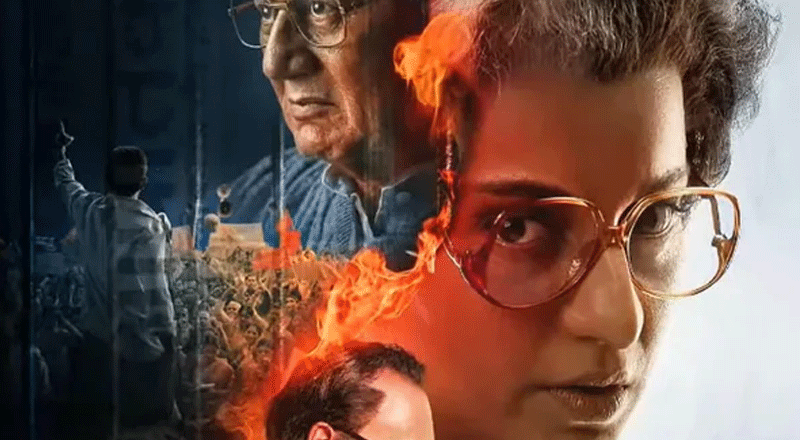A Film Surrounded by Controversy
Kangana Ranaut’s political drama Emergency has faced multiple hurdles since its inception. Chronicling the turbulent 21-month period of Emergency imposed by former Prime Minister Indira Gandhi from 1975 to 1977, the film encountered significant opposition even before its release. Objections from Sikh organizations, allegations of historical misrepresentation, and difficulties with Indian censors marked its journey to the big screen. Despite these challenges, the film finally saw its release on January 17, 2025. However, fresh obstacles emerged when pro-Khalistani extremists disrupted screenings across the United Kingdom, reigniting debates on free speech and artistic expression.
Protests Disrupt Screenings in the UK
During the film’s opening weekend, organized protests by certain British Sikh groups, including the Sikh Press Association, led to the obstruction of several screenings across UK cities, particularly in Harrow and other locations. According to reports, protesters stormed cinemas, causing disruptions that resulted in show cancellations and heightened security concerns. The demonstrators argued that Emergency portrays the Sikh community in a negative light and distorts historical facts surrounding the period.
Community organization Insight UK shared videos on social media showing masked protestors interrupting film screenings, forcing cinemas to take the movie off their schedules. The incident triggered strong reactions from Indian officials, film industry figures, and free speech advocates worldwide.
India’s Strong Response
Reacting to the disruptions, India’s Ministry of External Affairs (MEA) condemned the attacks and urged the UK government to take immediate action against the perpetrators. MEA spokesperson Randhir Jaiswal emphasized that freedom of speech and expression cannot be selectively applied.
“We have consistently raised concerns with the UK government regarding incidents of violent protests and intimidation by anti-India elements. Those obstructing free expression must be held accountable. We hope that the UK side will take appropriate action against those responsible. Our High Commission in London is in regular communication with community members for their safety and welfare,” Jaiswal stated at a press briefing.
Support from British Officials
British Member of Parliament Bob Blackman publicly supported Emergency’s right to be screened, denouncing the violent disruptions. In a video shared by Kangana Ranaut, Blackman described the protestors as “masked Khalistani terrorists” and affirmed that cinema owners were pressured into cancelling screenings.
Film Banned in Punjab
Opposition to Emergency was not limited to overseas protests. Several Sikh bodies in India also raised objections, leading to the Punjab government banning the film’s release in the state. Ranaut expressed disappointment over this decision, noting that her films have historically performed well in Punjab.
“I am pained that my movie was not allowed to be screened in Punjab, a state where my work has always been well-received. It is disheartening to see artistic expression being curtailed due to political pressure,” she stated in a social media post.
A Tumultuous Yet Promising Run
Despite the setbacks, Emergency managed to generate significant interest at the box office, reportedly earning ₹12.26 crore in its opening weekend. The film, featuring an ensemble cast including Shreyas Talpade, Anupam Kher, and Milind Soman, has sparked debates on historical interpretation, political bias, and the limits of free speech.
A Test for Free Speech
The disruptions surrounding Emergency highlight the growing challenges faced by filmmakers tackling politically sensitive subjects. While artistic expression should be protected, ensuring that such narratives remain balanced and historically accurate is equally important. The UK incidents underscore the global nature of political tensions and raise concerns about the intimidation tactics used to suppress differing viewpoints.
As the controversy unfolds, the response from authorities in the UK and India will set a precedent for how future artistic endeavors—especially those dealing with contentious historical events—are received and protected. The larger question remains: Can cinema truly be free from political influence, or will it continue to be a battleground for ideological conflicts?
(With inputs from agencies)





